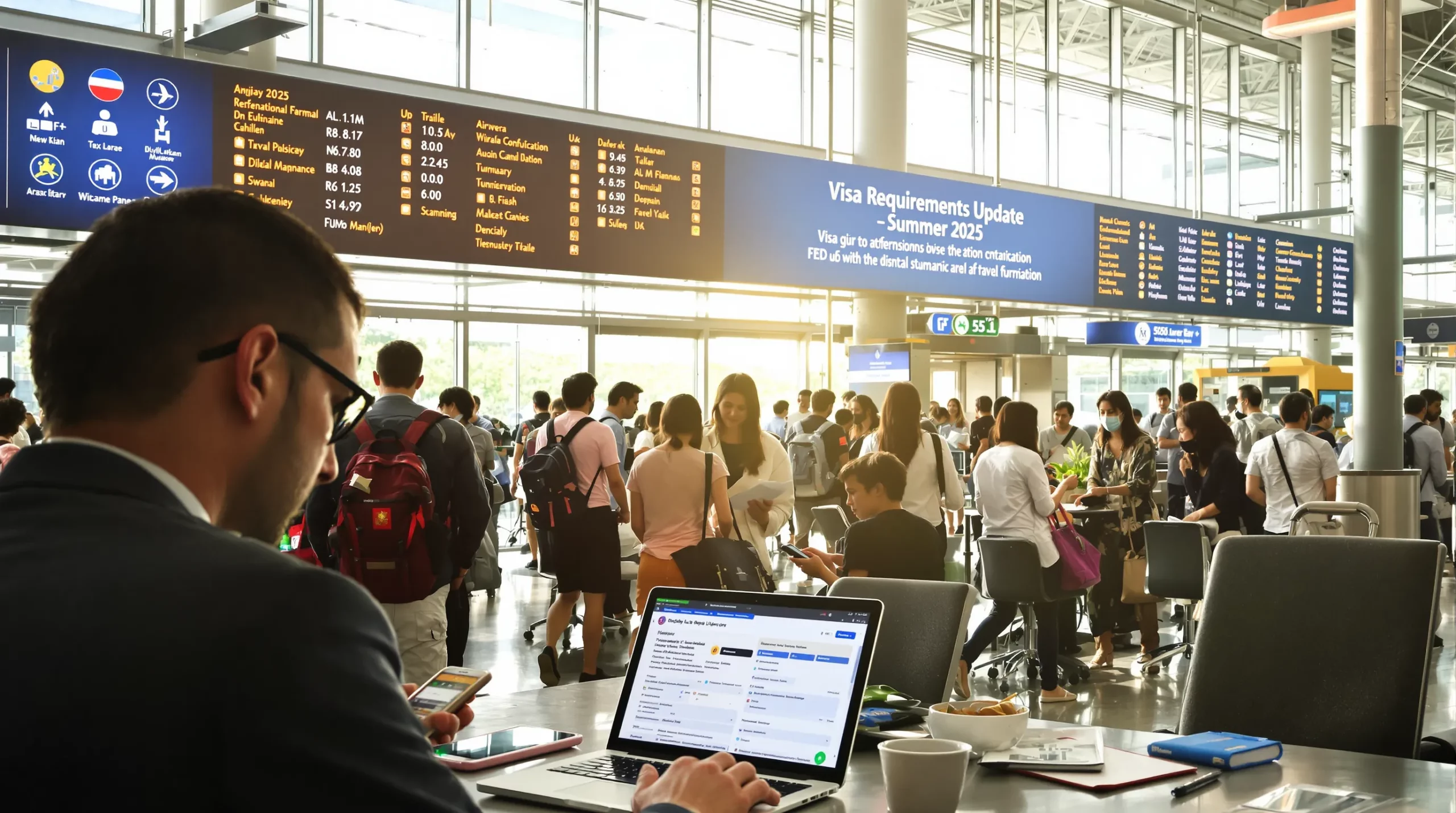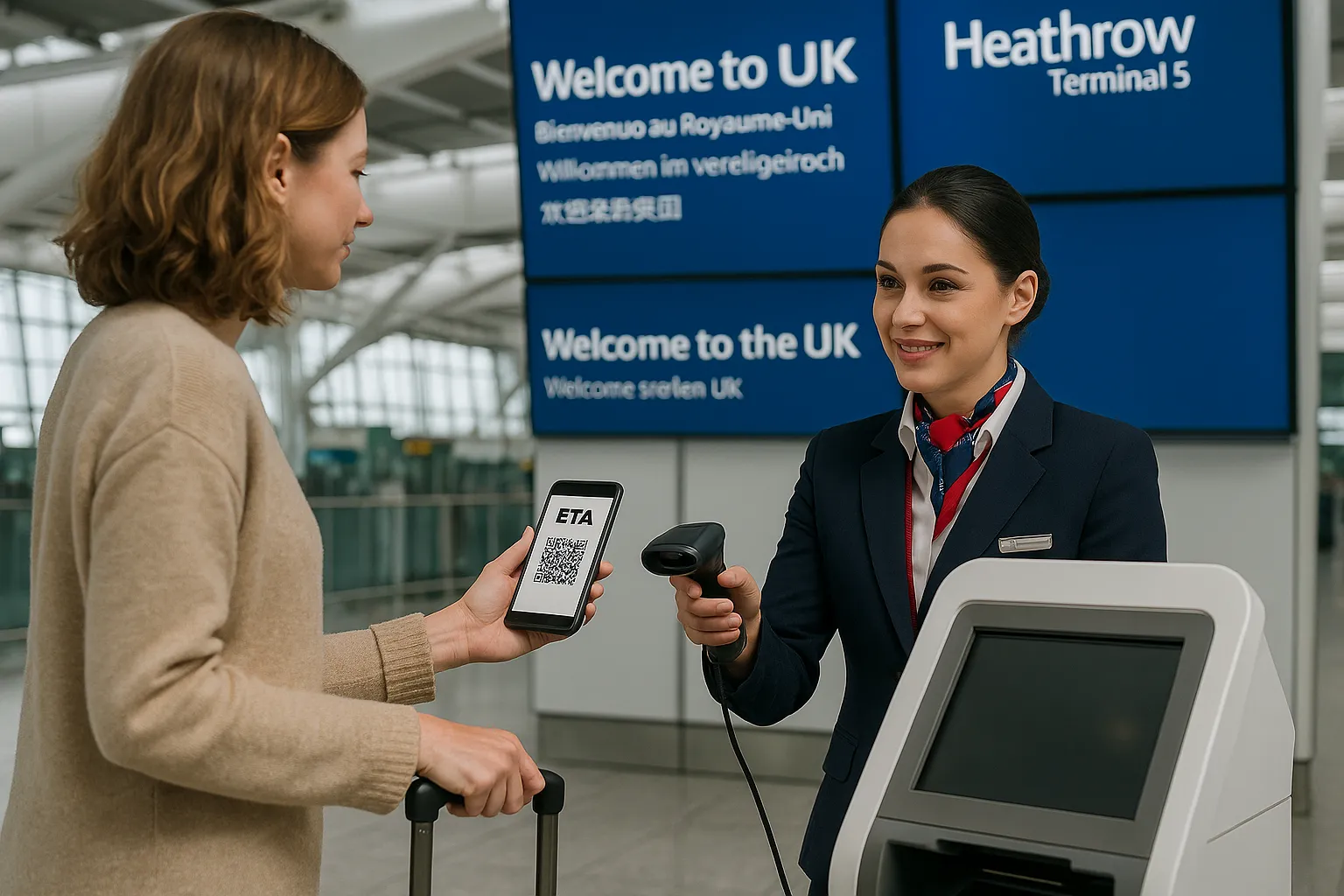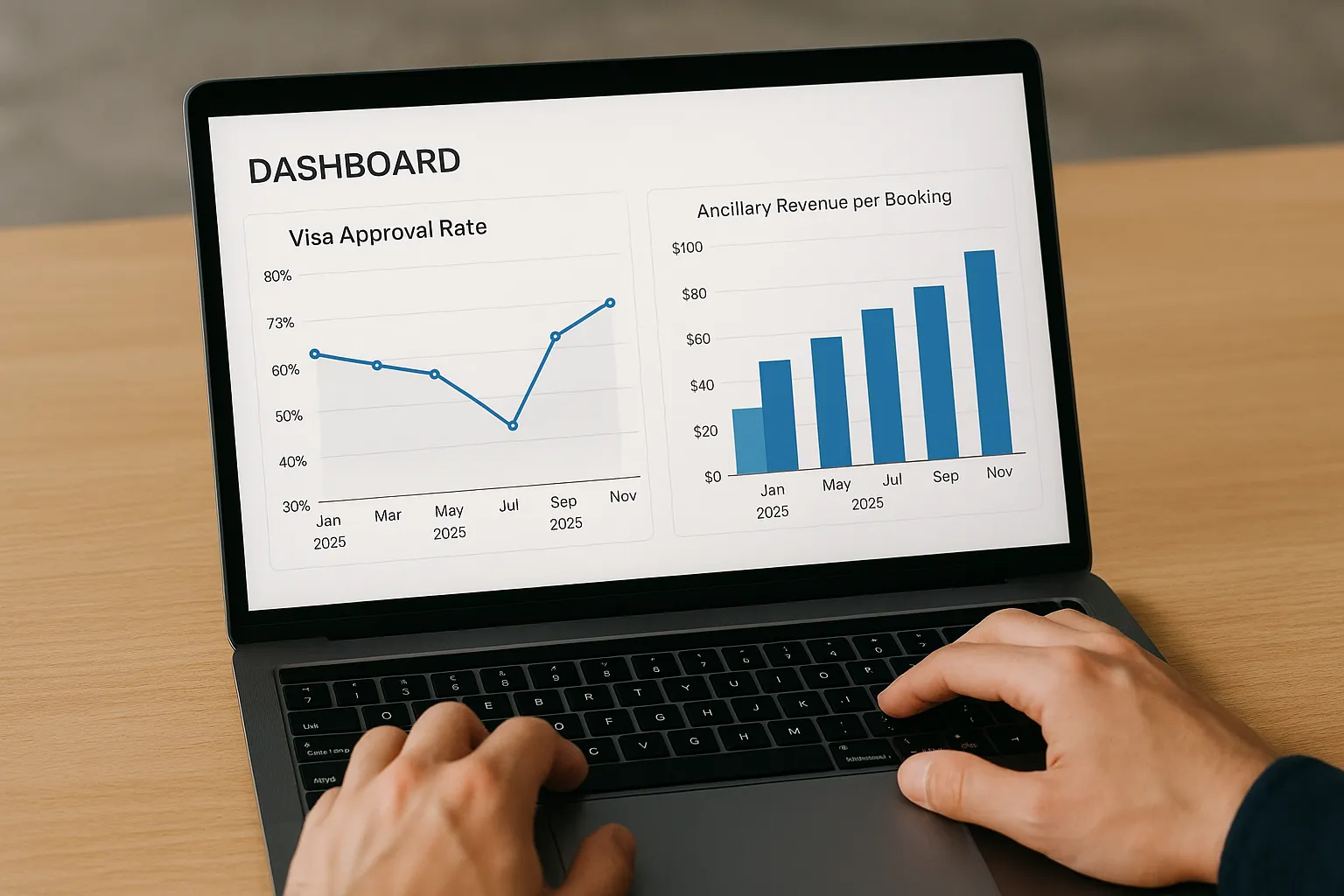Visa Policy Changes to Watch in Q3 2025

International visa policy moves quickly, and Q3 2025 is shaping up to be one of the busiest quarters in recent memory. From the long-awaited ETIAS soft launch to fresh fee structures in the United States, governments are rolling out new digital travel rules that will reshape booking flows, airport operations, and ancillary revenue opportunities. Whether you run an online travel agency, manage corporate itineraries, or simply plan to cross borders this summer, here are the visa policy changes worth tracking between July 1 and September 30 2025.
1. Europe’s Final ETIAS Dress Rehearsal (July–September)
After years of delays, the European Travel Information and Authorization System (ETIAS) will conduct its last round of large-scale testing in Q3 2025. The European Commission has confirmed that “full mandatory use” is still planned for late October 2025, but a three-month voluntary period kicks off on 1 July. During this window:
- Airlines, OTAs, and GDSs can start requesting ETIAS reference numbers at check-out but are not yet required to deny boarding to travelers who skip the step.
- Border guards at select Schengen airports will experiment with automated ETIAS scanners alongside traditional document checks.
- Authorities will monitor error codes and false-positive rates to fine-tune watch-list algorithms.
Travel sellers should surface ETIAS prompts now to avoid a conversion cliff in Q4. If you need a technical primer, see our in-depth ETIAS application process guide.
2. UK ETA Phase-In Expands to EU Visitors (15 August)
The UK Home Office will extend the Electronic Travel Authorization (ETA) requirement to visa-exempt EU, EEA, and Swiss nationals traveling to England, Scotland, Wales, or Northern Ireland for up to six months. Key points:
| Item | Current status | Change on 15 Aug 2025 |
|---|---|---|
| Eligible nationals | Qatar, Bahrain, Kuwait, Oman, Saudi Arabia, UAE | All visa-exempt passport holders, including EU/EEA/CH |
| Fee | £10 | Unchanged |
| Processing time | 24–72 hours (average) | Anticipated to stay under 72 hours |
| Validity | 2 years or until passport expiry | No change |
Airlines flying intra-Europe leisure routes into the UK can expect a spike in questions from short-haul passengers. Our UK ETA overview for business travelers covers the core workflow.

3. Saudi Arabia: eVisa Expansion to Cruise Arrivals (1 September)
Saudi Arabia’s Ministry of Tourism will officially allow holders of the popular eVisa to enter the kingdom via designated cruise ports from 1 September. Previously, cruise passengers needed ship-arranged group visas. Highlights:
- Valid for tourism stays up to 90 days within a 12-month period.
- Single-application fee set at SAR 480 (~US$128), unchanged.
- Cruise lines integrating real-time visa data APIs can auto-verify passengers before embarkation. Learn how in our guide on shore-visa API data.
4. United States: ESTA Fee Increase and “Next-Gen” Questions (Effective 11 July)
The US Customs and Border Protection (CBP) will raise the ESTA fee from US$21 to US$29 and introduce four new security questions focusing on synthetic drug trafficking and cybercrime. Although processing times remain instant for most applicants, travel advisors should update cost calculators and pre-trip checklists.
For Asia-Pacific travelers, note that South Korea’s K-ETA fee is dropping from KRW 10,000 to KRW 8,000 on the same date in a bid to remain competitive—an illustration of fee volatility across markets.
5. Canada: ETA Expansion to Five Additional Countries (20 July)
Immigration, Refugees and Citizenship Canada (IRCC) will let eligible travelers from Argentina, Costa Rica, Seychelles, Morocco, and Thailand apply for an eTA instead of a full visitor visa if they:
- Hold a valid US non-immigrant visa or have held a Canadian visitor visa in the last 10 years.
- Arrive by commercial flight.
This mirrors last year’s rollout for Brazil and suggests a gradual shift toward a pan-American travel authorization model.
6. India’s eVisa Port Fee and Biometric Pilot (Starting 5 September)
India will pilot contactless fingerprint capture kiosks at Bengaluru and Delhi airports for eVisa holders. At the same time, the government will introduce a US$5 “port facilitation fee” payable online during application. Expect minor UX changes in the eVisa portal and possible queuing differences at immigration desks.
7. Digital Nomad Visas: Q3 Launch Calendar
Several jurisdictions will unveil or amend digital nomad residence permits this quarter:
- Indonesia: The long-teased five-year “Second-Home” eVisa will move from beta to general availability on 22 July, allowing remote workers to stay without local sponsorship if they meet a US$2,000 monthly income threshold.
- Mauritius: The Premium Visa will shift to a paid model (US$70) on 30 August, adding a health-insurance proof requirement.
- Colombia: RES. 5472 removes the apostille requirement for bank statements from 1 September, reducing application time by 30 percent, according to the Ministry of Foreign Affairs.
8. Fee and Currency Updates to Watch
| Country | Document | Change date | Old fee | New fee |
|---|---|---|---|---|
| Turkey | e-Visa | 1 July | US$60 | US$62 (adjusted for inflation) |
| Vietnam | e-Visa (90-day) | 1 August | US$25 | US$30 (includes expanded multiple entry) |
| Kenya | Electronic Travel Authorization | 15 September | US$32 | US$34 |
9. Action Plan for Travel Sellers
- Refresh eligibility databases weekly. Q3 includes mid-month effective dates that can break automated workflows if MIME types or fee endpoints change.
- Segment marketing campaigns. For example, promote “Book your UK ETA in three clicks” to EU customers starting in July.
- Test sandbox environments for ETIAS and UK ETA now. Our sandbox transaction tutorial explains how to simulate live calls without risking real bookings.
- Upsell compliance add-ons. With four separate fee hikes this quarter, travelers are more likely to pay for a bundled visa service that guarantees the correct price and timing.
- Monitor approval-rate KPIs. Changes in question sets (ESTA) or biometric pilots (India) can temporarily suppress approval rates. See our KPI guide on visa management platforms.

Frequently Asked Questions
Do I need to apply for ETIAS now, or can I wait until October? You can travel without ETIAS during the voluntary period (July–September 2025), but applying early will save last-minute headaches and help you clear automated gates faster.
Will the UK ETA affect EU residents who also hold Irish citizenship? Holders of Irish passports remain exempt from the ETA. Dual citizens traveling on their Irish document do not need to apply.
Why is the US raising the ESTA fee again? The additional US$8 funds the Brand USA marketing program and CBP technology upgrades, according to the Federal Register notice of 12 April 2025.
Are cruise passengers heading to Saudi Arabia required to apply online? Yes. Cruise lines will no longer manage group visas. Each passenger must hold an approved eVisa linked to their passport before embarkation.
Will SimpleVisa support the new biometric kiosks in India? SimpleVisa’s API will automatically surface the port facilitation fee and include a biometric instruction sheet in the confirmation PDF, making it easy for travelers to prepare.
Stay Ahead of Q3 2025 Visa Changes
Hundreds of micro-updates happen behind the scenes every quarter. SimpleVisa’s rule engine parses official gazettes, embassy notices, and government APIs daily, pushing real-time eligibility, pricing, and document requirements straight into your booking flow or white-label portal. Want to see how it works?
Book a 20-minute demo to learn how SimpleVisa can automate ETIAS, UK ETA, cruise eVisas, and more—while turning compliance friction into ancillary profit.